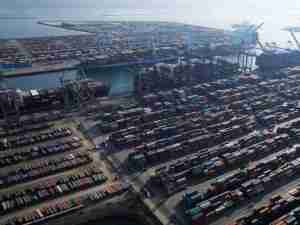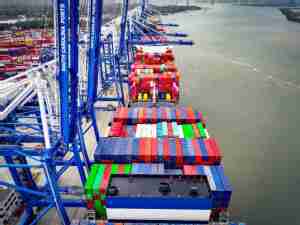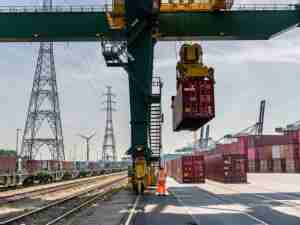Russian ports operator Global Ports 2013 sales drop
By: Reuters | Mar 17 2014 at 06:59 AM | Ports & Terminals
Russia’s Global Ports’ sales dropped last year as acquisition of rival NCC failed to offset a decrease in oil exports revenues, the London-listed ports operator said on Monday.
Global Ports, which bought NCC in December in a cash-and-shares deal worth $1.56 billion, said its oil products terminal segment saw a 13 percent fall in revenue.
CEO Alexander Nazarchuk said that exporters preferred the recently launched oil terminal at the Russian Baltic Sea port of Ust-Luga, not owned by Global Ports, to the Estonian Vopak terminal, in which the company owns 50 percent. The terminal accounted for 21 percent of Global Ports’ sales.
Revenue for the new group fell 2 percent on a pro-forma basis to $737 million.
Global Ports’ standalone net profit rose 6 percent to $114 million, while NCC earnings halved to $38 million due to higher operating and finance costs and a $7 million foreign exchange loss as the Russian rouble weakened against the dollar.
Global Ports operates five container terminals in Russia and accounts for 30 percent of container throughput at Russia’s ports. It also owns two container terminals in Finland.
Global Ports’ acquisition of NCC was aimed at increasing exposure to one of the world’s fastest growing container markets. The number of containers per capita is low in Russia at 41, compared to 93 for Turkey and 168 for the European Union.
Including NCC, Global Ports’ gross container throughput rose by around 3 percent last year, while Global Ports’ standalone throughput was flat.
It also plans to pay an additional dividend of $11.5 million in total, or $0.06 per global depository receipt. That would bring its total payout for 2013 to $0.31 per GDR, or $58.4 million.
Russian private transportation group N-Trans and Danish oil and shipping group A.P. Moller-Maersk’s APM Terminals each have 30.75 percent stakes in Global Ports.










